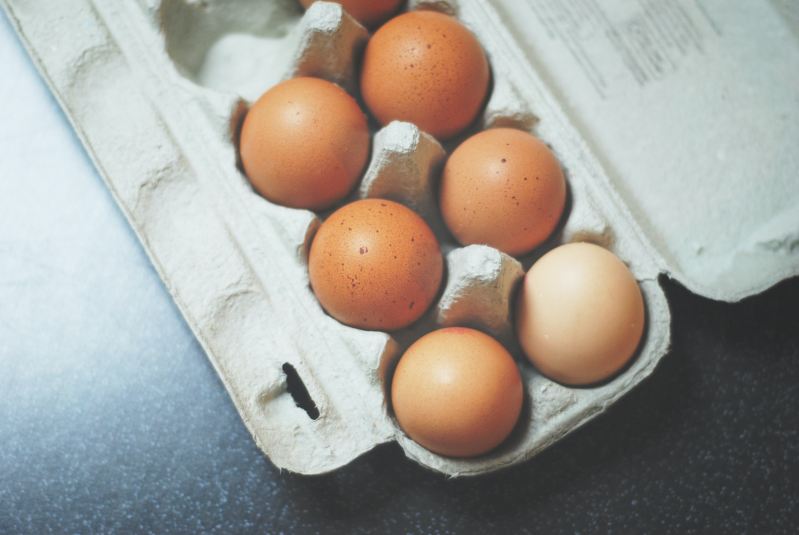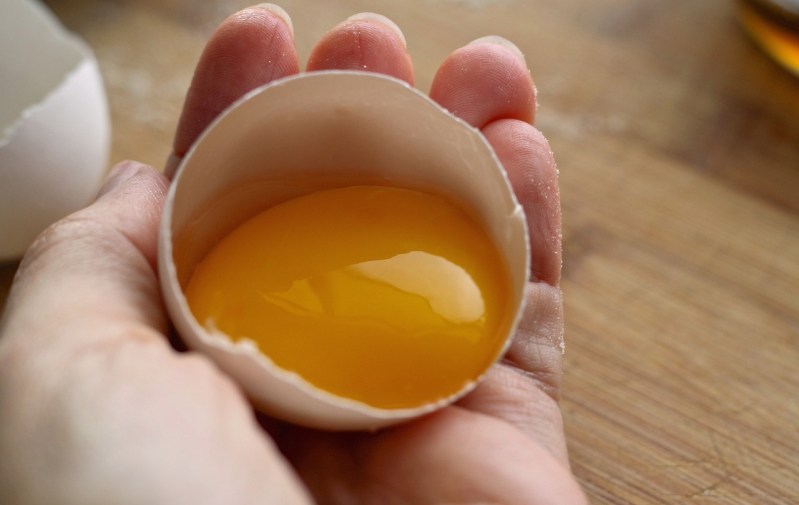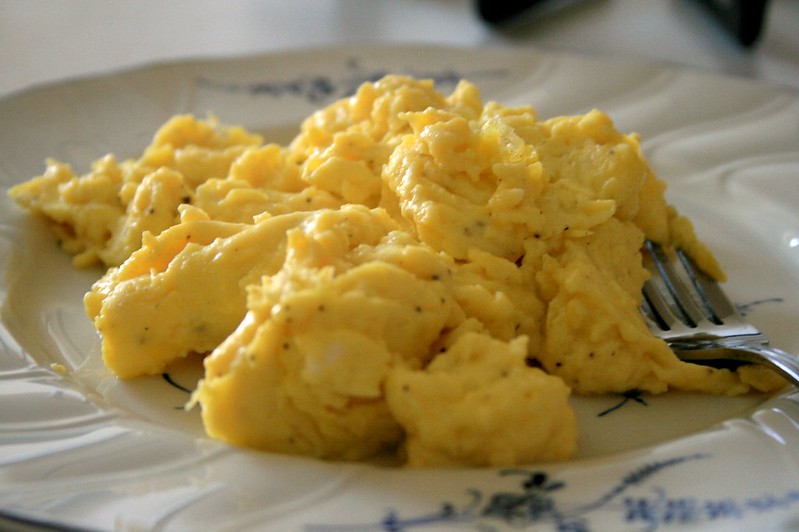
They say breakfast is the most important meal of the day, but your breakfast is only as good as the quality of foods you consume. Starting your day with a sugary breakfast like cereal can slow you down, causing brain fog and sluggishness. On the other hand, eggs are a wholesome breakfast food full of protein and nutrients that set you up to start the day right. There are dozens of ways to enjoy eggs, from egg Benedict recipes to hard-boiled eggs.
Each large egg contains six grams of protein, five grams of fat, and is jam-packed with nutrients such as Vitamin B12, Vitamin D, folate, and more. Sourced right from nature, an egg is considered “nature’s multi-vitamin” since one single egg contains so many essential nutrients for our health.
While this all sounds great, it’s important to understand what each of these nutrients really do within the body. Below, we’ll break down the important nutrients hidden in an egg and how each can benefit your health.

Eat the whole egg
Before diving into all the nutrients jam-packed within an egg, let’s start with the basics. An egg is made up of two parts: the egg white (outside) and the egg yolk (inside). Dietary advice in the 1960s once told people to consume only egg whites, avoiding the inner egg yolk due to its cholesterol content. However, this flawed advice ignores one crucial component — the yolk is the portion that houses all the amazing nutrients in an egg.
This dietary advice from the 1960s guided people for several decades, leading to an “egg white” craze. However, more research has since evolved, and scientists have learned something new. Consuming an egg yolk does not actually increase your blood cholesterol levels. Instead, your liver responds accordingly and produces less cholesterol when more dietary cholesterol is consumed.
What this means is that you don’t need to fear the egg yolk anymore. Instead of gravitating toward egg whites, eat the whole egg to get the maximum benefit from the protein, vitamins, and nutrients found within the egg. To take things even further, consuming more eggs might even be a “secret weapon” to support weight loss goals.

Nutrients found in an egg
Now that you know how to consume the entire egg, we can dive into the amazing nutrients packed within a tiny yolk. According to the NIH, consuming just two eggs covers about 10 to 30% of your daily vitamin requirements. Here’s what nutrition you can find within an egg.
Vitamin D
The yolk of an egg is a great source of Vitamin D, containing about 37 IU within the average large egg. Experts suggest most adults get between 600 to 800 IU of Vitamin D daily, leaving many Americans deficient in this important vitamin. This important fat-soluble vitamin is responsible for many functions in the body, including the absorption of calcium for maintaining strong bones. In addition, getting enough Vitamin D also supports a healthy immune system.
In combination with other forms of Vitamin D such as supplementation and getting enough sunlight, consuming eggs can help you to achieve your daily Vitamin D requirements.
Folate
Folate is another important nutrient that is involved in protein metabolism and making DNA. In a large egg, there is about 22 mcg of folate, which equates to about 6% of the recommended daily value. This can help you to prevent a folate deficiency, which can lead to uncomfortable symptoms such as fatigue and weakness.
Vitamin B12
Vitamin B12 is used within the body to support healthy blood and nerve cells. In addition, it is used to support the production of DNA and support cell metabolism. With an estimated 6% of the population deficient in Vitamin B12, adding eggs to your breakfast can help you to prevent a Vitamin b12 deficiency. Each large egg contains about 0.6 µg of Vitamin B12 or about 25% of the recommended daily value.
Vitamin E
Eggs also contain a small amount of Vitamin E, a fat-soluble vitamin that acts as an antioxidant in the body. Vitamin E has tons of roles in the body, including supporting healthy eyes, blood, and brain and helping to prevent damage to cells. Getting enough Vitamin E is important to help fight damage from free radicals and help prevent blood clots from forming.
Choline
Our bodies rely on choline, a nutrient that helps support the brain and nervous system. Getting enough choline is important for your brain functions, such as memory and mood. Eggs are an amazing source of choline, containing about 54% of the daily recommended value of choline in a two-egg serving. Choline is also responsible for helping our muscles contract during use.
Vitamin B2
Vitamin B2, also called riboflavin, is also found within the yolk of an egg. Riboflavin helps support energy levels and cell growth, as well as support the breakdown of fats in the body. Adding eggs to your breakfast routine can help you prevent a B2 deficiency, as each medium egg contains about 0.25 mg of Vitamin B2.

Adding eggs to your breakfast routine
The humble egg is clearly a nutrition bomb. Adding eggs to your breakfast routine can help you get a well-balanced dose of many essential vitamins and minerals to support health and wellness. Get creative and find new ways to add eggs to your breakfast meal without getting bored, changing it up from scrambled to deviled and everything in between.



